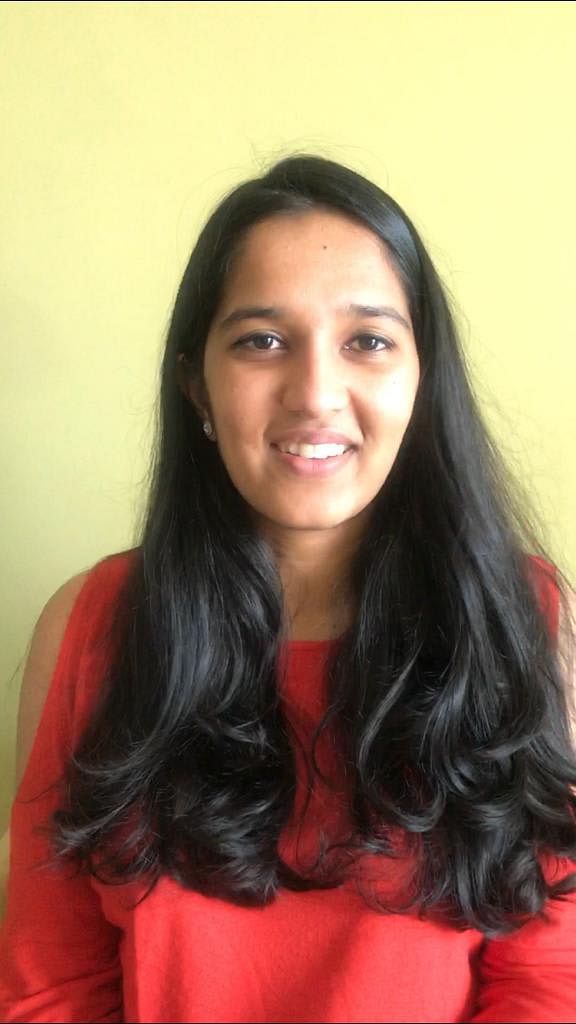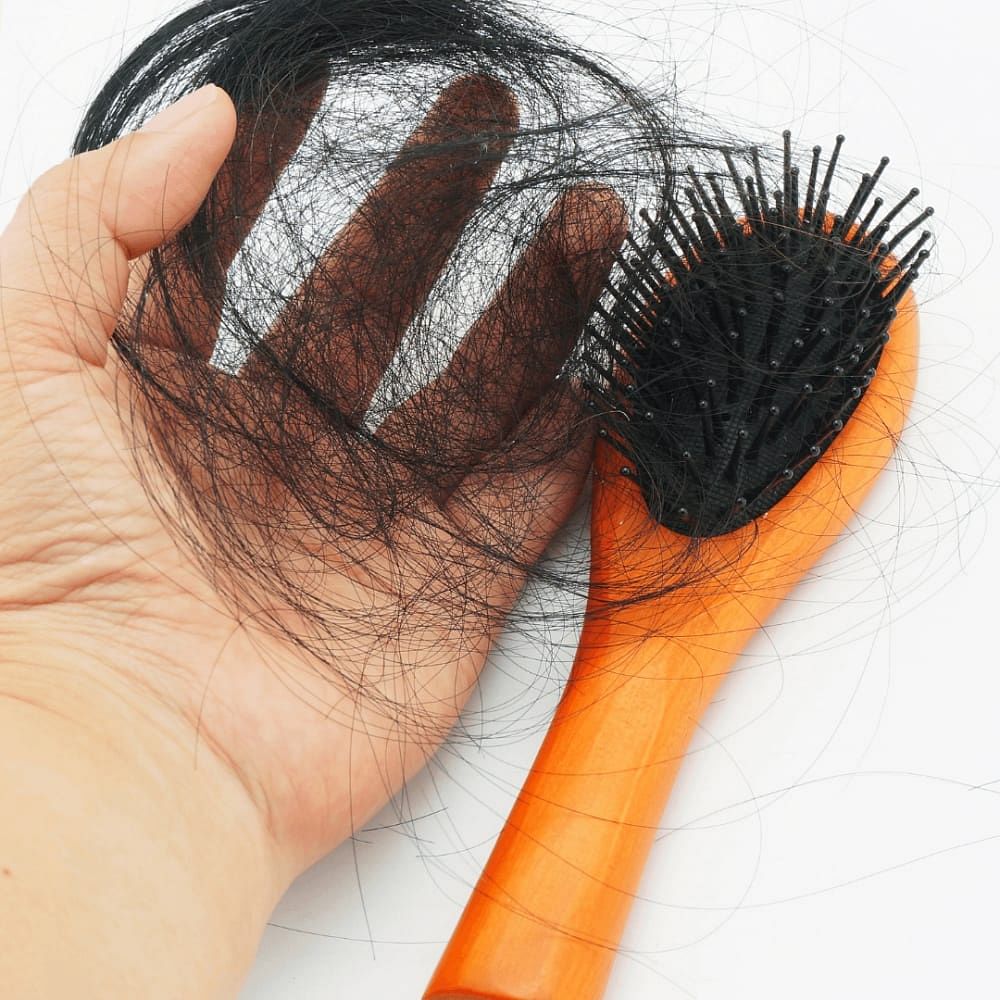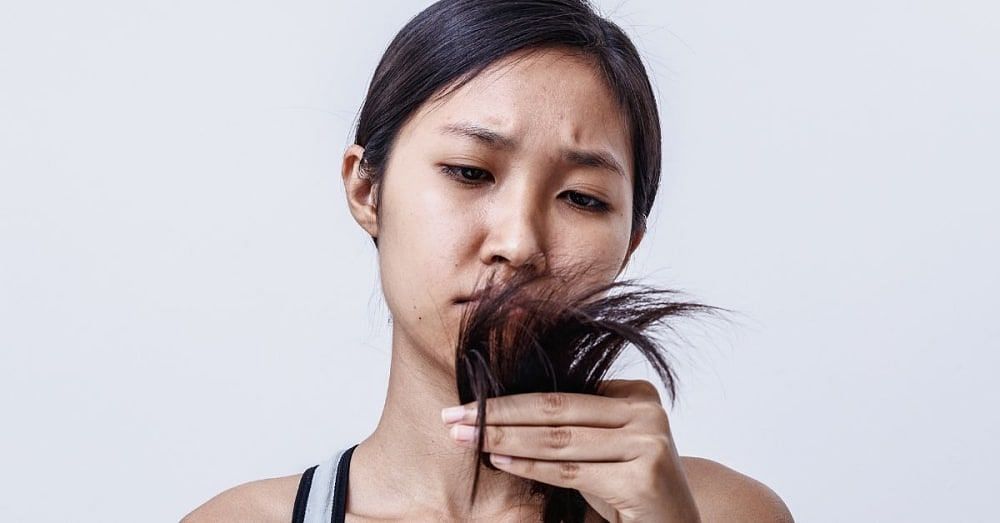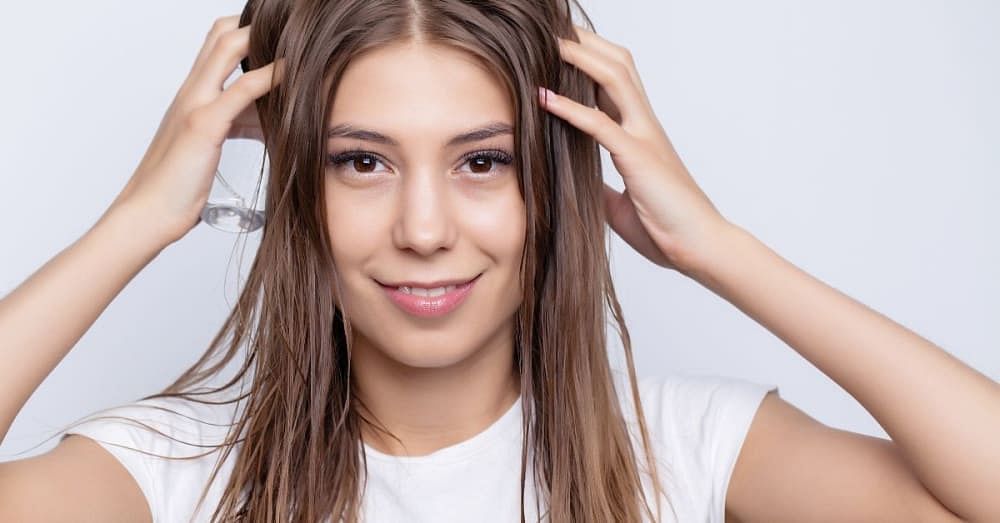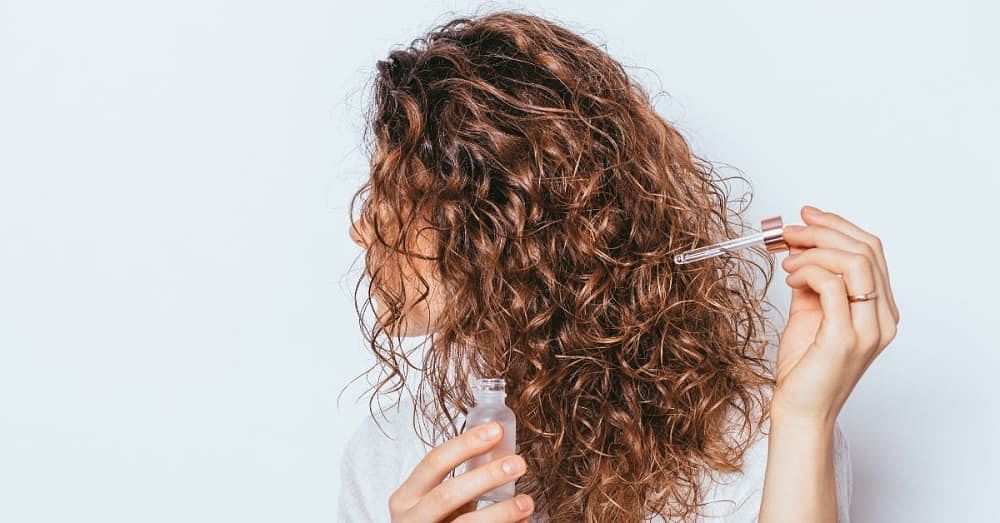Hair loss is one of the most troubling side effects of PCOS, both emotionally and physically. But whether you’re experiencing a receding hairline or witness loose strands in the shower, it’s essential to understand why it’s happening and what you can do about it.
Read on to learn about PCOS and PCOS hair loss.
What is PCOS?
Polycystic Ovary Syndrome is a condition in which the ovaries overproduce androgen hormones. These hormones are involved in the onset of puberty and initiate hair growth in the pubic region and underarms.
Some individuals with PCOS tend to develop various cysts in their ovaries. However, people can get PCOS without developing cysts as well.
As per Johns Hopkins Medicine Health Library, cysts form when an egg doesn’t mature from the ovary during ovulation. As a result, the cysts produce excess androgens, causing various symptoms. Some of these symptoms include:
- Acne
- Weight gain
- Excess body hair growth
- Infertility
- Dark patches of skin
- Irregular menstrual bleeding
- Excess sebum on the skin
Does PCOS Cause Hair Loss?
Yes, PCOS does cause hair loss. Besides the symptoms mentioned above, another symptom of PCOS is hair loss. The reason behind it is generally the excessive androgenic hormones. They cause hair to become limp, dry, and lackluster, breaking easily. This form of hair loss is also known as female pattern baldness.
In some people, PCOS hair loss begins around the temples. Others experience it in the frontal scalp area.
Will it Grow Back?
The hair you lose due to PCOS won’t grow back on its own. That said, you can stimulate new hair growth using different treatments.
Besides, there are various things you can do to mask PCOS hair loss.
Why Does PCOS Cause Hair Loss?
The female body tends to produce male hormones, including testosterone. These hormones are known as androgens. As mentioned above, these play a vital role in stimulating hair growth in pubic regions and triggering puberty.
PCOS is a condition that causes excess production of androgens. The result of this is virilization, the development of more masculine features. Thus, women with PCOS get hair in places where it doesn’t generally grow, like the face, chest, abdomen, and neck.
Extra androgens cause the hair on your head to start thinning and are the culprit behind female pattern hair loss or androgenic alopecia.
However, hair loss is not a common side effect of PCOS. That is because the androgen levels need to be exponentially high for you to have that kind of hair loss.
Symptoms of PCOS Related Hair Loss
PCOS hair loss results in more hair on clothes or furniture than usual. People might face some shredding of hair daily. Besides, you may find hair on your pillowcase after waking up in the morning and clumps in the shower.
PCOS Hair Growth on Face
Excessive facial hair growth in women is known as hirsutism. This condition is common in people with PCOS.
PCOS Hair Loss Treatment
As PCOS hair loss occurs due to hormonal imbalance, hormonal regulation is integral to the treatment. There are various treatments that you can opt for restimulating hair growth. That said, keeping your expectations in check and having patience are essential.
Let’s discuss the different PCOS hair loss treatments.
1. Medications
Medications are one of the most common and effective lines of treatment for PCOS. Your healthcare professional will prescribe medications based on your condition. These can be:
2. Oral Contraceptive Pills
Also known as birth control pills, these help lower androgen levels. Their consumption may help slow down hair growth or reduce excess hair growth.
Besides, these pills also help with other PCOS-related symptoms like irregular periods and acne.
3. Aldactone (Spironolactone)
Famously referred to as the aldosterone receptor antagonist, this oral medication effectively treats androgenetic alopecia. It helps block the effects of androgen on the skin. Most healthcare professionals recommend it with other oral contraceptives.
In addition, your doctor may prescribe a medicated shampoo or topical balm to help control your hair loss.
4. Hair Transplant
This PCOS hair loss treatment is a surgical procedure to implant hair on the scalp. It involves the removal of hair follicles from a hair-dense area and transplant into the area of baldness.
While there is no guarantee of a hair transplant, it can be beneficial for PCOS-related hair loss.
PCOS Hair Loss Home Remedies
You can also rely on home remedies to treat PCOS hair loss. Using moisturizing shampoos and conditioners for damaged hair can go a long way. Shampoos crafted for thinning hair may protect hair and promote new hair growth.
Apart from that, you can use natural bristles brushes as they are softer on hair than the traditional ones. Avoiding tight hairstyles like buns or high ponytails that put extra pressure on hair also helps.
People with PCOS also rely on natural remedies like vitamins and supplements like zinc and collagen to stimulate hair growth. As per a study, weight loss helps lower androgen levels in women. It also helps with other PCOS symptoms and leads to less hair growth.
How Can I Make Hair Loss Less Noticeable?
You can effortlessly minimize the appearance of PCOS hair loss with some changes. One of the most efficient changes is styling your hair a particular way.
Here are some things you can try for different hair conditions.
1. For Thinning Hair
- Use products that add volume to your hair to make them appear fuller.
- Experiment with a partial wig to cover your thinning hair without damaging clips or glue.
- Get shorter hairstyles to add fullness.
2. For a Widening Part
- Get bangs that start further up on the top of your head.
- Try parting your hair in other areas.
- Take a root cover-up powder and apply it to your scalp.
3. For Bald Patches
- Try a wig fall.
- Experiment with a scarf or hair band wide enough to cover the spot.
- Get a hairstyle that’d keep hair over the bald area, like a low ponytail.
When To See a Doctor
While many don’t consider hair loss a severe condition, it can be for others. If hair loss is impeding your life and negatively affecting you, it’s time to see a specialist.
A worthy first step is undergoing tests to assess hormone levels. That is because if hormonal imbalance is the case, the healthcare provider will explain the options at your disposal to make your life easier.
Summing Up on PCOS Hair Growth
As a condition, PCOS may cause hair loss in individuals. Luckily, there are various treatment alternatives available to help you grow back the hair. Some of these include medications, hair transplants, and natural remedies. You can reach out to an expert to ensure you get a customized hair growth plan.
FAQs
Can PCOS Be Cured Permanently?
While there is no proven cure for PCOS, there are many ways to manage its symptoms to ensure the situation doesn’t worsen. You can make a diet plan at home, follow the medication provided by your healthcare professional, and ensure sound sleep. Getting in regular exercise also does wonders for PCOS.
How I Reversed My PCOS Hair Loss?
Self-care measures and medical treatments are essential to reverse PCOS hair loss. Minoxidil, a lotion that you apply to your scalp, is popular among women with female pattern baldness. Besides, anti-androgen medication and a balanced diet can be exceedingly helpful for managing hair loss.
How To Control Hair Fall in PCOS Naturally?
One of the most efficient ways to control PCOS-related hair fall is Weight loss. That is because it helps lower androgen levels. You can also consume supplements like biotin and zinc.

